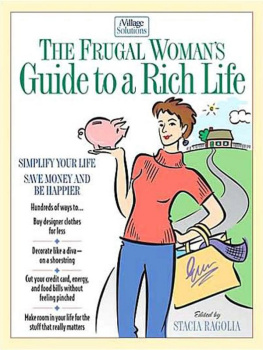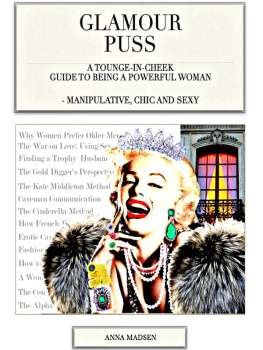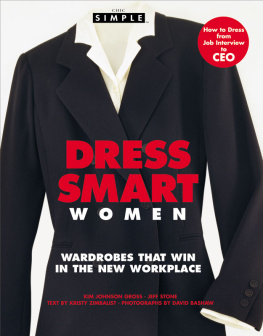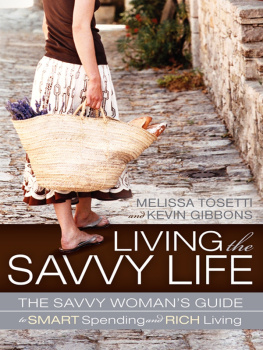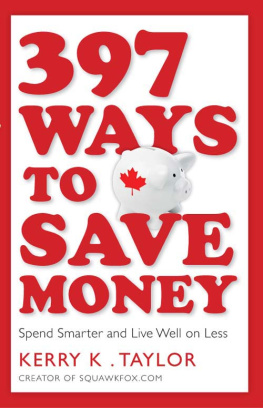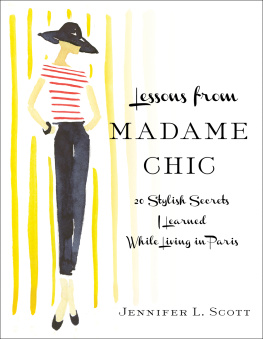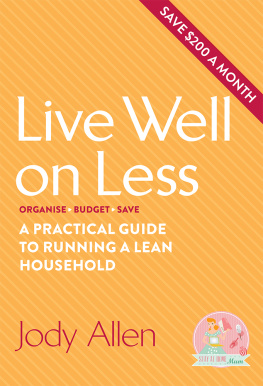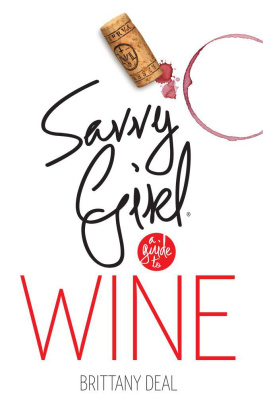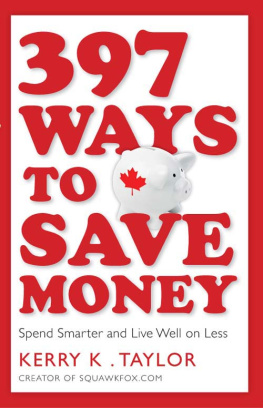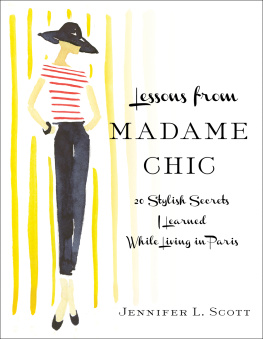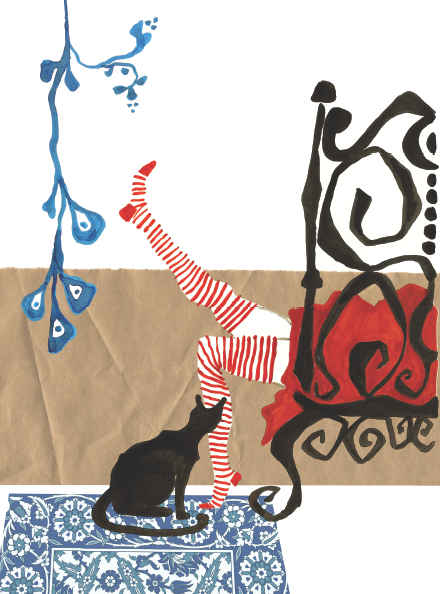Contents
Cover
Title Page
Dedication
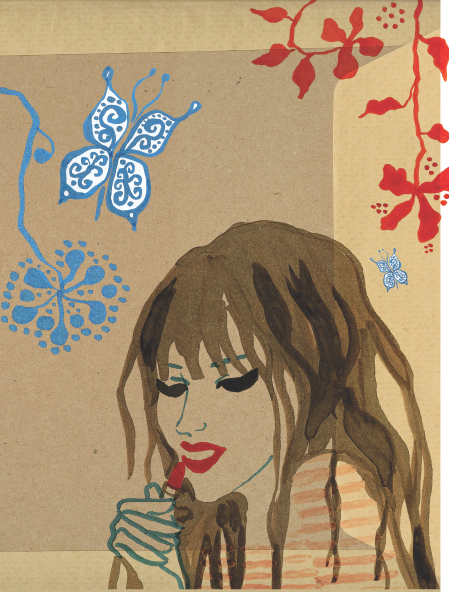
Preface:
The Logic of Libertine Thrift
I must get one thing perfectly clear. This is not an account of saving, hoarding, sheltering, or even particularly respecting money. I am not a tea bag squeezer. I know many small ways to enjoy things cheaply, to skid under the wire of retail and fool a snobbish eye. But I am not inherently thrifty in any sensible way. I love silk satin as much as corduroy. I need perfume more than milk. I will spend my last six dollars on strawberries and a single lily rather than bread. And I am not impoverished by a stroke of misfortune. I chose an occupation famous for unstable income. Writing, traditionally, is the vocation of inherited nobility and radical fools. To do it well takes a sea of hours. Books take years and yearsand I am often broke because of the exact cost of time. Buying eight hours a day outside an office is my outrageous liberty and because of this indulgence, I have lived without health insurance, life insurance, or next months rent for a very long while. I am, clearly, an accountants nightmare; defiantly voluptuary in the face of grim facts, but I feel I have something to share. Theres got to be some point to being predictably, elegantly, perpetually broke. And the point for me is that one can live well, if somewhat cautiously, on less. Much, much less.
Money is the heartbeat of life but hardly the soul. And yet it underscores every moment. For everyone, except perhaps the very rich, money is a grind. Its the ticket, we are told, to joy and liberty. When the chips are down, money is concrete (rent is rent), but in the credit-driven modern Western world it is also abstract; often our spending is suspended somewhere between what we can really afford and what we believe we deserve. With desire comes debt. Yet, in the grip of a luxury-driven culture, it has become very hard to discern between what is vital and what is just lust. In a shopping frenzy fueled by plastic, the cost of the things, the true cost (in time and interest and stress and repayments) gets lost. The culture of consumerism is slightly more sober now, tempered by the environment as much as the economyyet as conscious and prudent as one tries to behave, the temptation is always there, pulsing inside a pocketbook, poised to lash out.
One of the main reasons I am often down-to-dime-jar broke is that I cannot use a credit card. I wish this limitation was based on principle alone but the fact is that Im reckless. Utterly so. Like a gambler I would spend my chips in a hot minute, heading off to the airport in a hired car with the sky and my credit limit as the only boundaries. Compared to many I have a somewhat archaic, understanding of money. I spend exactly what I have in my pocket, often not wisely. And what I cannot reach financially I re-create, or fake, or imagine, or repair, or legally steal.
Poaching luxury for pennies is something of an art form. My mother taught me the true value of a cup of tea in a fine hotel lobby or grand caf. Look at those fabulous fakes lounging all over Caf de Flore in Paris, she often remarked, squatting there like lizards over a single caf au lait, soaking up the scenery, spying on the rich! I suppose its no crime to take up quality real estate. Space, like time, is also money. Stretching dollars for their ultimate pleasure is not the Puritan approach to thrift, but it is an alternative, equally intrepid path to survival. As in ordinary economy, its an art of balance between luxuries and basics. The cheap green apples and the seven-dollar butter-crust pie shell; the unfashionable whole fish and the very good wine. The three-dollar lipstick and the hundred-dollar drop-dead vintage velvet dress. The plain white bedding sprinkled with lavender water and ironed as smooth as a sheet at the Ritz. The freedom of a first date devouring baked chicken and a bottle of red on the open deck of a public ferry. The defiant perversity of reading Proust at the Laundromat, letting dead, shabby hours transfigure into opulent reflection.
Having to look for pleasures that cost nothing or that are very, very cheap has a strange way of setting you free. Free from convention. Free from competition and social pressure. Free from dreary, predictable adult ways. I once made fall-leaf corsages for all twelve guests at a Thanksgiving dinner while walking along the streets of Brooklyn, choosing the best leaves with deliberate delight. Each guest wore their corsage differentlyon a lapel, as a cocktail hat, stuffed into the knot of a cravatand at the end of the night we scattered them across the table in a drunken pagan rite. Whimsy, perhapsbut generosity too, of a different kind: abundance is not often associated with having little money. Instead, we are taught that money is freedom because it is the basis (we suppose) of free choice. Yet money can also blunt you to the power of simplicity and the potency of your own imagination. If I think about the food Ive eaten at the most expensive restaurants and the food Ive made myself, I know which struck me as the most soulful and delicious. I have seen prawns, mussels, and oysters stacked on a glittering tower tray at Balthazar in New York City, and sat there thinking $89.95 for two! $89.95 for two! $89.95 for two!barely tasting the food. When I contrast this with the cherrystone clams my husband dug out of the sand in Sag Harbor and stashed in the trunk of our rented car wrapped up in his Indian scarf, I realize that some things can feel luxuriousthat is, rare and invaluablewhen they are in fact free. These free things and liberated moments of life are what give meaning to the things that cost money, and not the reverse.
I admit its hard to remember this truth in daily life. We cant all just flip over night and become born-again Franciscan souls gadding around in sandals, beatifically ignoring a good sale or a beautiful box of Provenal soap. But we can, perhaps, stop and reflect long enough to work out what we really need from our money (and the precious time spent to earn it) and what we want, ultimately and deeply, from life. As a proud Secondhand Rose and a shameless lifelong spendthrift, I invite you to readdress your financial priorities and (still) live decadently well in almost every detail, except cost. Often its just a matter of putting a little thought before haste.
Everyone has a different notion of what it means to survive. We are born into one budget and blossom into another based on the times. Luxury for a woman in 1942 was probably a pair of nylon stockings and for us its a pair of Louboutin heels. When my parents were growing up in the seventies, a secondhand army jeep, some pillows, blankets, and a suitcase full of mangoes were all they needed to drive a family of four cross-country. My generation is confronted with a top-range stroller that costs more than a hippie jalopy did in 1976. Every act of life is loaded with so much more gear, technology, equipment, and expenseright down to the two-dollar bottle of Fiji artesian water. Rich girl-style has become so mainstream in recent years that it is easy to forget that one is


